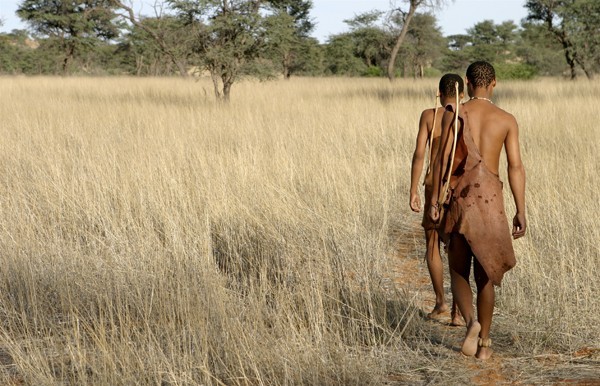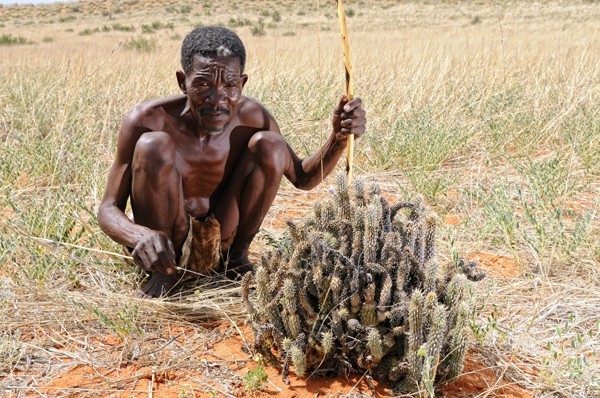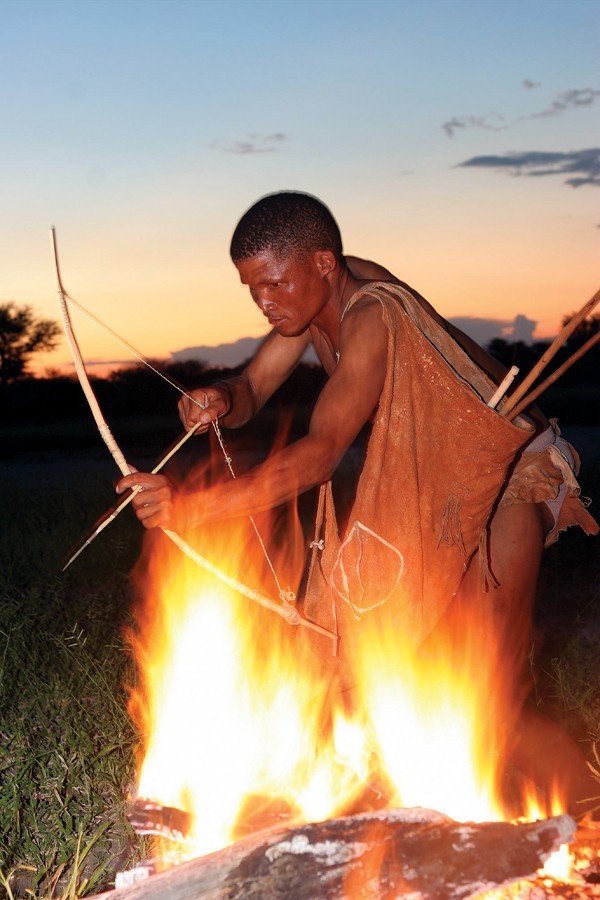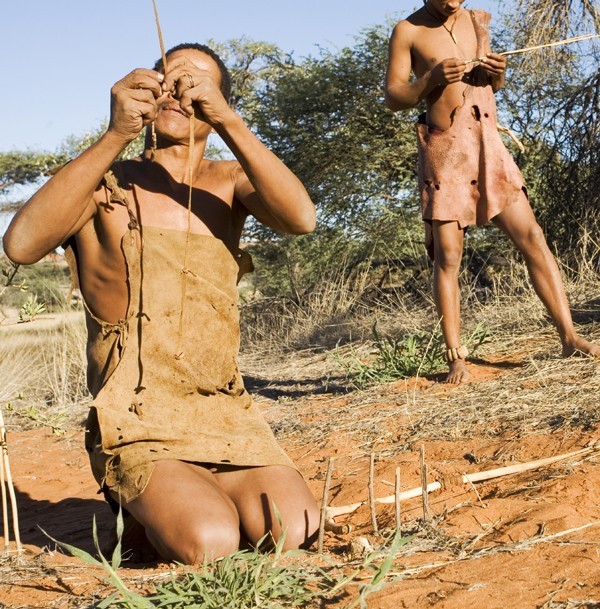An African safari is traditionally experienced from the heightened perspective of an open-top land rover, at dawn and dusk, and translated by a trained professional. Guests will be on the look out for members of the Big Five and keep their cameras at the ready so as not to let the swish of a spotted tail go uncaptured. Many people these days prefer to enjoy their safari holiday with all the luxurious trimmings; ones that have been designed and developed to comfort foreign visitors and to ensure that the remoteness of some of these areas, particularly Botswana’s Kalahari desert, does not instil a sense of fear or danger. Others relish the rustic safari, canvas tents and endless hours of silent stalking. There is a lot that defines an African holiday; the simmering heat and expansive plains decorated with the silhouettes of many wild beasts, but there is also a history of an African people whose legendary existence has defined this continent almost as much as its animal inhabitants.
The Bushmen of the Kalahari are a group of the indigenous people that populated Southern Africa as far back as 30 000 years ago, learning and living off the earth and the animals. The San people, as they are often called, lived in small clans or family groups and led nomadic lifestyles, moving from rocky enclaves to desert camps as they tracked the movements of the wildlife. These people, who were around to receive explorers and settlers in the ancient time of geographical discovery, have embodied the intriguing basis of scholarly material, and have characterised fantastical children’s stories. They repute a legendary existence and hold the secrets of a life before invention – who wouldn’t want an opportunity to gain first hand insight into Africa’s human history?
After colonisation and the wars for land and possession took place, the Bushmen, unaccustomed to the menace of man, were forced to abandon their rural existence and adjust to modern day society in order to survive. A number of Bushmen would have retreated deep into the desert and happily maintained their simple lives, continuing to pass down essential survival skills and the knowledge of natural resources. Haina Kalahari Lodge is closely located to the ancient Mecca of the Bushmen that inhabited the area 6 000 years ago. Here, history lives on, as the Haina Bushmen are the living examples of an African original. This fascinating culture is still very much alive and now that time has passed and tolerance has been learned, both the foreign and indigenous populace are able to utilise this unique landscape.
Lessons of survival, living off the earth and following a migratory path; this ancient culture is fascinating to learn about, and guarantees enrichment of any safari experience. An area of the vast Kalahari, near to Haina Lodge, is home to a group of Bushmen, who either choose to continue their nomadic lives or to become a part of the Haina family; interacting with guests and imparting their knowledge. The search for roots and plants to nourish resilient bodies, the reliance on fire and the taught ability to ignite them, and the art of the rain dance are all integral aspects of Bushmen life. An intimate look into this unique lifestyle is offered as a cultural addition to a Kalahari safari experience at Haina Lodge. The tracking and survival skills of the Bushmen and the accuracy of hunting with poisoned arrows – the Haina Kalahari Lodge Bushmen Experience is not to be missed.
During the excursion, guests will be introduced to the legendary lifestyle of the San. Traditionally dressed men and women will impart some of the tales of myths and legends in the form of poetry, songs and dances. Trackers guide novices into the veld and demonstrate their means of survival through meticulous knowledge of the medicinal and nutritional uses of plants, as well as, which plants are handled with the utmost care as they produce the lethal secretions responsible for killing their prey. The interpretation of animal tracks, and the preparation and preservation of food provides even more reason to marvel at this small population of desert wanderers.
Experiencing Africa on foot changes one’s perspective of this vast land; taking away the security of a defensive, rumbling vehicle and emphasising the shortness of one’s legs is one way to grasp the enormity of the wild. Walking safaris are relished by those who seek the thrill, but walking in the footsteps of indigenous people who dare to shut their eyes on starry nights, is undoubtedly one of the richest and most humbling experiences one could experience in Africa.





